Hungary in the decline? Human Development Report provides shocking revelations

Is Hungary really in shambles? The recently published Human Development Report for 2023/2024, spanning 324 pages, offers an exhaustive analysis of human development across 193 countries. The report delves into crucial indicators such as the Human Development Index (HDI) and its environmentally adjusted counterpart (PHDI).
The Human Development Index derives from life expectancy, expected years of schooling and average years of schooling, while also incorporating per capita carbon dioxide emissions and material use for environmental impact adjustments within the PHDI.
Additionally, the report examines gender economic disparities, the multi-factor poverty index, and HDI calculations. An article by Növekedés.hu focuses on analysing the rankings and trends of these indices, particularly focusing on the V4 countries and Austria.
The study highlights a steady improvement in global HDI from 1999 to 2019, followed by a decline from 2019 to 2021, with subsequent recovery between 2022 and 2023, albeit not to the same extent.
The improvement in living standards began earlier and was more significant in developed nations compared to less developed ones. An intriguing revelation from surveys indicates that a majority, 51%, feel they lack control over their lives, while an even larger percentage, 68%, believe they have no influence on their government’s decisions.
Furthermore, there has been a rise in distrust among individuals, with a higher proportion expressing scepticism towards others’ trustworthiness and a declining belief in individuals’ reliability.
What about Hungary?
In 2022, Switzerland, Norway, Iceland, Hong Kong and Denmark topped the HDI rankings, closely followed by Austria, with a larger gap separating them from the Visegrád Group (V4) countries. The highest possible value is 1, and as the data indicates, Hungary experienced a negative change from 2021 to 2022 at -1, while Denmark showed the most significant improvement, climbing three places in the rankings.
Notably, Austria occupies the 22nd position, significantly trailing behind the top 5 countries and displaying a considerable gap compared to the V4 nations. Nonetheless, Hungary stands out among the V4 countries, narrowly trailing Slovakia. Within the V4, three countries have slipped in position, while Slovakia’s rank remains unchanged.
Hungary’s HDI improvement from 1990 to 2022 was lower than that of the Czech Republic and Poland, with no alteration in ranking between 2015 and 2022, according to the study. However, Hungary’s lower HDI is partly attributed to having the lowest life expectancy among the Visegrád Group (V4) countries. Interestingly, when environmental factors such as per capita carbon dioxide emissions and material use are taken into account, Hungary ascends 8 places in the HDI ranking, showcasing improvements alongside other V4 nations.
The study underscores a significant percentage difference of 48.6% between the HDI and its environmentally adjusted version, PHDI. The analysis raises questions about how effectively HDI measures human development, considering its limited factors and the fact that GDP serves more as a growth indicator than a developmental one.
The PHDI indicator endeavours to capture the environmental impact of GDP growth in each nation. Despite these intricacies, the data from the study furnish valuable insights for comparisons and further economic policy considerations.
Read also:
- FM Szijjártó: Cooperation with Singapore benefits Hungary and the EU – HERE
- Hungarian Socialists call for wage hikes in higher education – HERE
Featured image: depositphotos.com
Hungarian Socialists call for wage hikes in higher education

The Socialists are calling on the government to start talks on wage hikes at state-run universities, similarly to those that have been transferred to foundations under the government’s university restructuring scheme in recent years, the head of the opposition party’s board said on Wednesday.
“The atmosphere is tense in several of Hungary’s prominent universities where teachers and other employees have launched a petition for higher wages,” István Hiller, a former education minister, told an online press conference.
Wages had been hiked at universities that agreed to participate in the structural reform but not at outliers, Hiller said. The wage tension had been exacerbated by primary and secondary school teachers’ wage hikes last year, which resulted in “some students earning more a year after graduation than their university lecturers,” he said
Hiller also called for a review of the restructuring, which he said “has failed to yield benefits”. “Operation has become more complicated, red tape has grown but not the general quality [of education]… Although the state is no longer an owner of these universities, it continues to finance them.”
He called for the state to maintain research universities outside Budapest too.
The party is also calling on the government to take steps for Hungarian higher education and research to “re-enter EU circulation”, he said. Researchers “have fallen prey to a debate between the government and the EU”, and had been excluded from cooperation with other EU institutions, he added.
He said the government should “stop discriminating against universities that chose to remain autonomous”.
Read also:
Enough is enough: 1000s of professors speak out against unfair salaries at three major Hungarian public universities
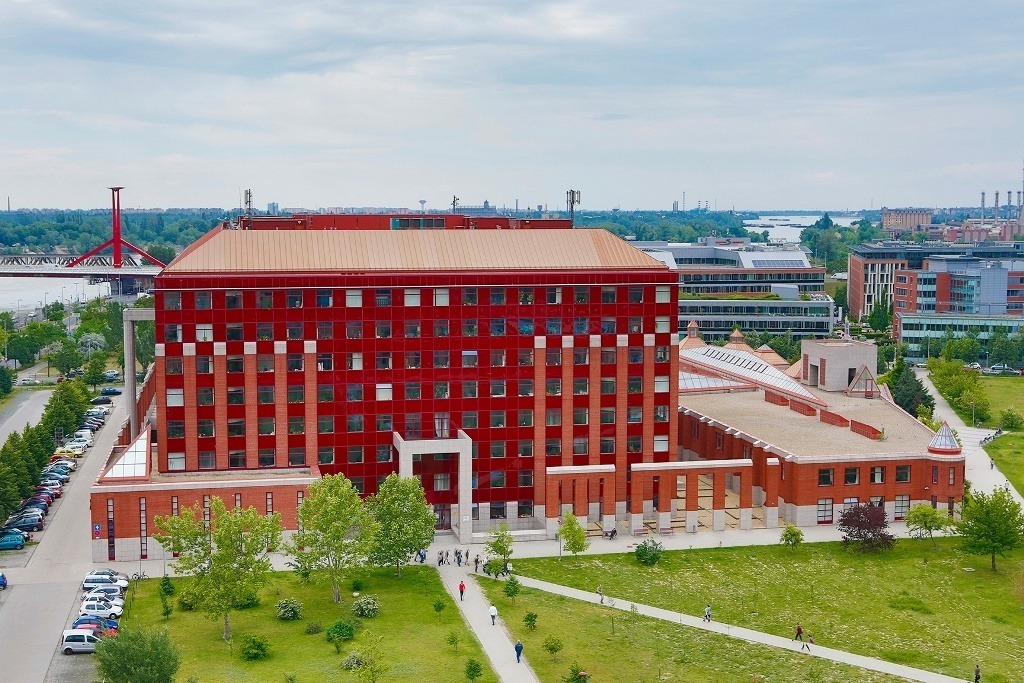
In three large, prestigious Hungarian higher education institutions, a total of nearly 3,000 professors are demanding decent, competitive university staff salaries. The academics are calling for an immediate pay rise, an end to the lack of financial recognition and a guarantee of uninterrupted and high-quality teaching.
Thousands of professors protest
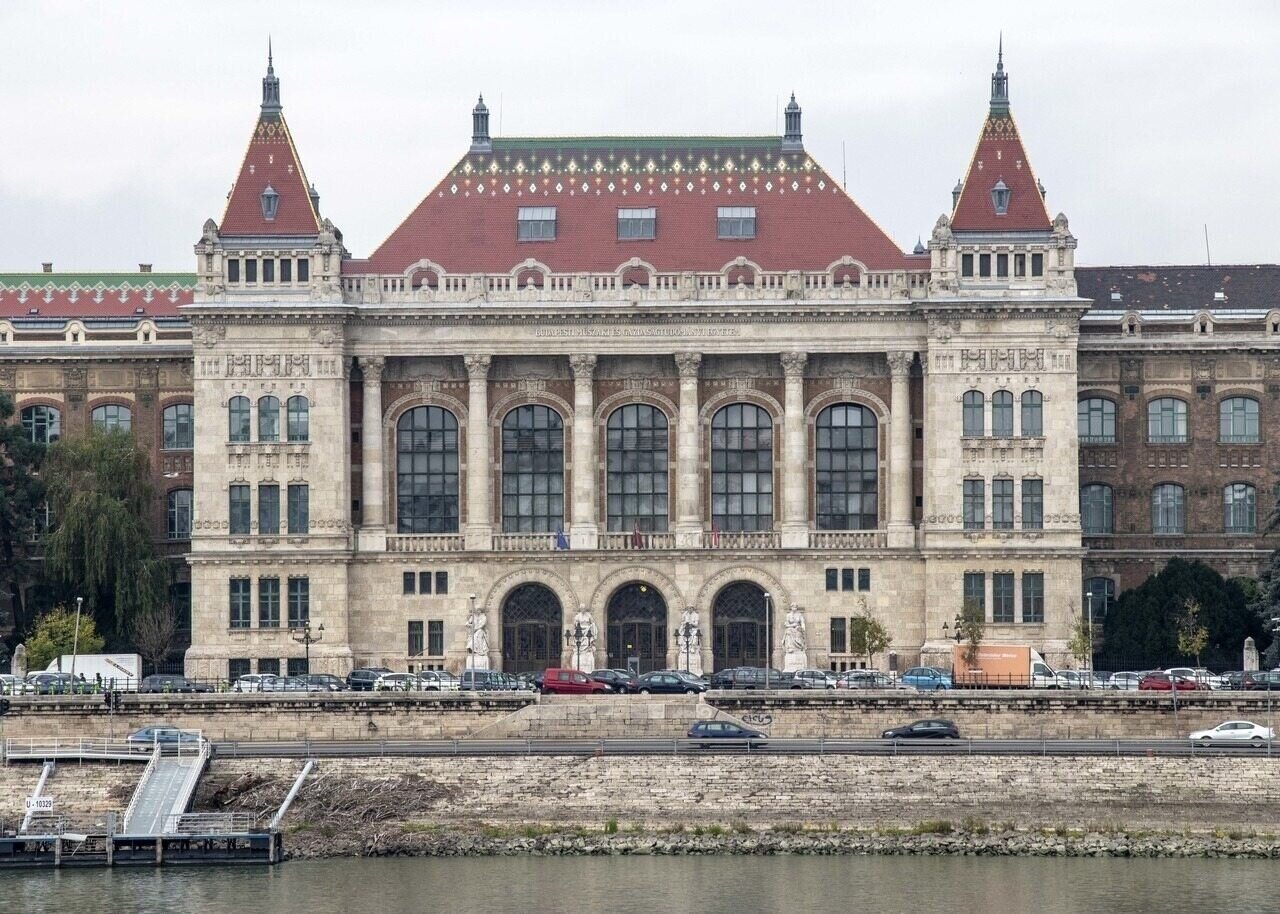
Nearly 1,500 university staff at Eötvös Loránd University (ELTE), around 1,000 at the Budapest University of Technology and Economics (BME) and more than 250 at the Liszt Ferenc Academy of Music signed the open letters on the above-mentioned topic, sent to the state higher education institutions’ maintenance authorities, G7 reports.
At ELTE, Hungary’s largest university, an institutional minimum salary was introduced after pressure last year. This ensures that university teachers’ salaries cannot be less than a certain amount. This minimum salary is HUF 380,000 (EUR 962) gross for assistant lecturers, HUF 420,000 (EUR 1,083) gross for senior lecturers, and HUF 362,000 (EUR 917) gross for teaching-research support positions.
Trainee teachers earn more than associate professors
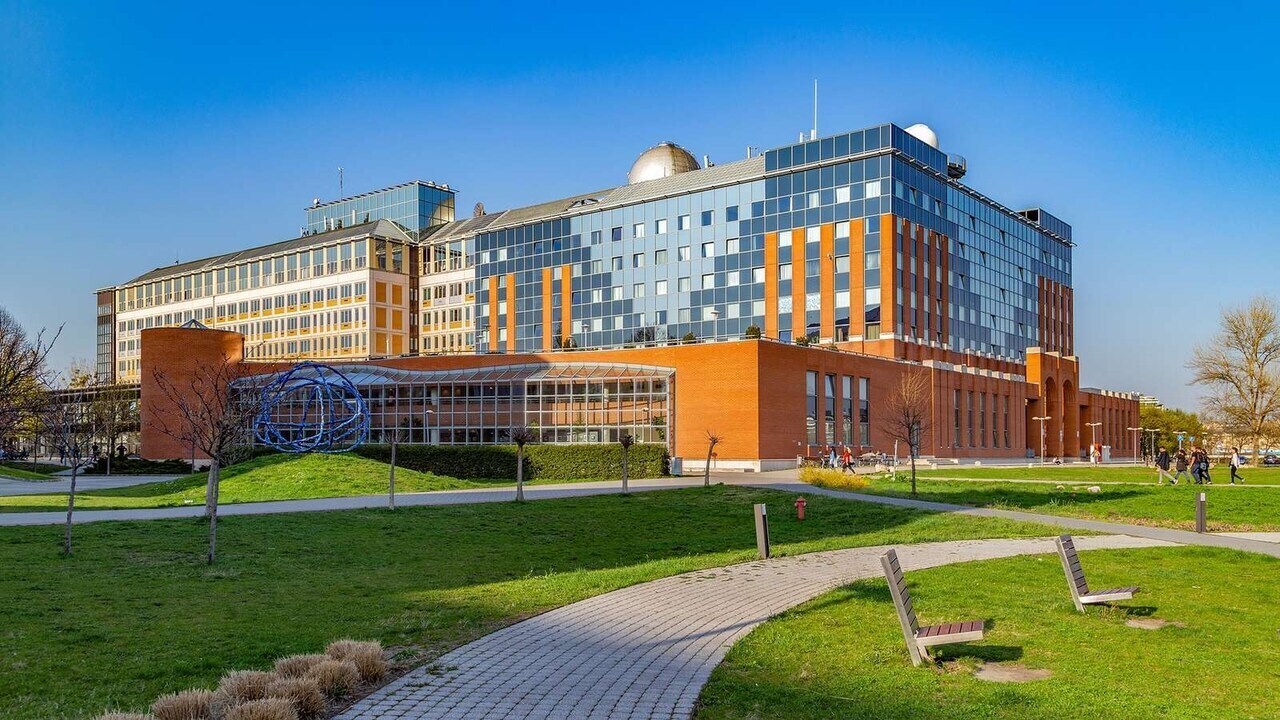
There is no minimum salary for higher associate professor and university professor posts. Still, according to the open letter, the average salary for associate professors this year is HUF 504,480 (EUR 1,278) gross. This indicates that the average salary at higher university posts is now lower than the salary of trainee teachers. In addition, last year’s inflation of nearly 18% has contributed significantly to the depreciation of the university minimum salary.
In recent years, the government has placed most universities in Hungary in a special foundation in a pseudo-privatisation operation (i.e. while maintaining state funding). Three of the five universities that remain state-owned are protesting against working and pay conditions. The two exceptions are the Hungarian University of Fine Arts and the National University of Public Service, which has special status and belongs to the Prime Minister’s Office.
Tragic situation since 2017
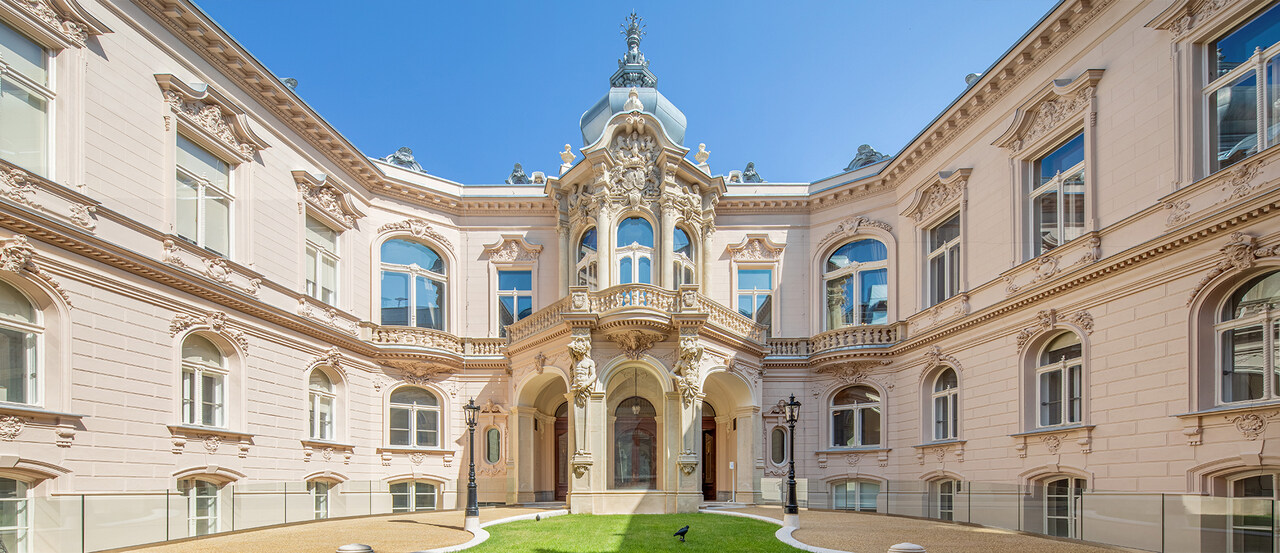
According to G7, the desperate pay situation for college and university teachers is nothing new. The issue has been in the press from time to time in recent years, and academics have spoken out, to little avail. A lecturer at the Károli Gáspár University of the Reformed Church, for example, calculated as early as 2017 that a warehouse clerk at Aldi earns more than an associate professor.
By 2021, the situation had improved to the extent that only the wages of night warehouse clerks exceeded the basic salary of associate professors, but the basic salary of Aldi warehouse clerks working during the day was still well above the salaries of assistant lecturers and senior lecturers.
Technically, the real salary amount has not changed for years: the 15% rise granted twice, in 2021 and 2022, has not made the situation any better. What is more, this rise was not calculated in the basic salary in every institution: there were some places where getting it was conditioned on performance.
Read also:
Foreign national is the newest Ministerial Commissioner in the Orbán government
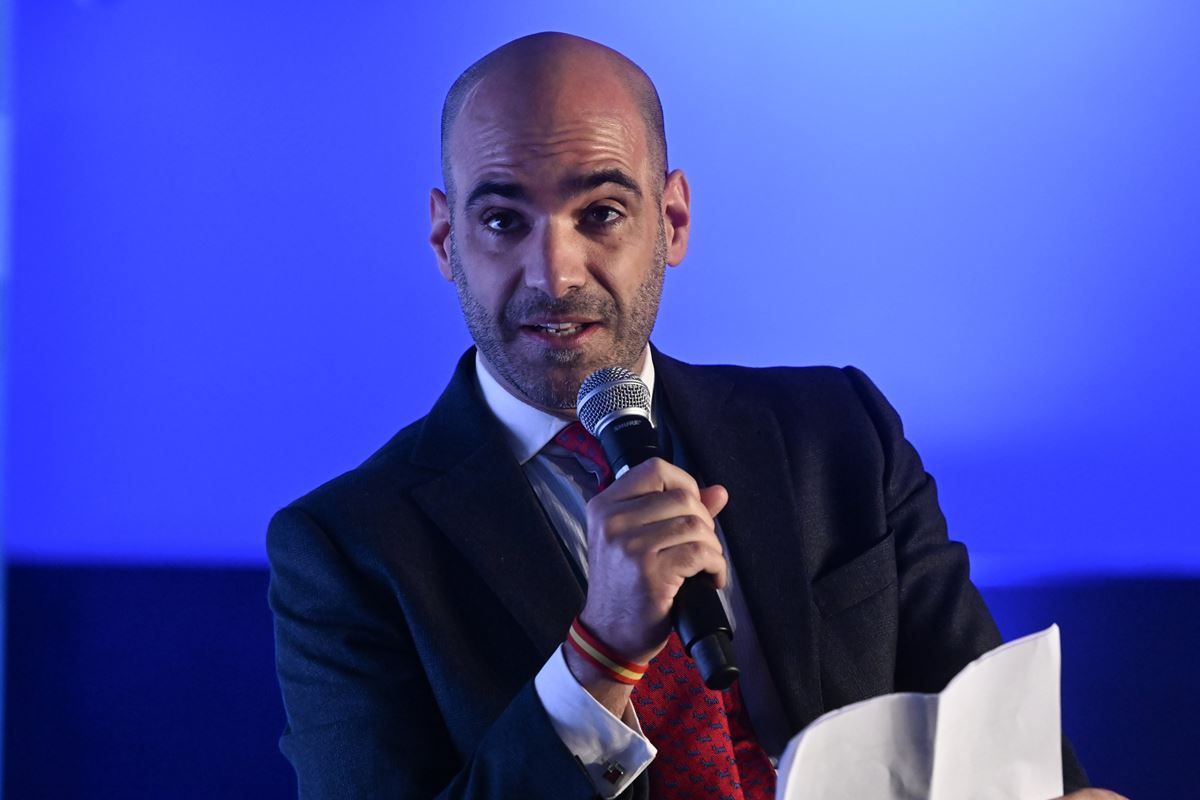
János Csák, the Minister for Culture and Innovation, has formally appointed Ballester Esquivias Rodrigo María as the Ministerial Commissioner for the Internationalisation of Hungarian Higher Education and Research.
According to the ministry, Rodrigo Ballester, a Spanish national, has more than two decades of international experience, having worked for 15 years in the EU institutions and five years as a member of the cabinet of the EU Commissioner for Education. He pursued education at the College of Europe and worked as an EU civil servant, attaining a broad knowledge in EU decision-making processes and internal structures. He has studied in several countries and has been a regular lecturer in EU law and EU affairs for 14 years, mainly at Sciences Po University in Paris.
As head of the MCC’s European Studies Workshop, Rodrigo Ballester frequently speaks at conferences and seminars and contributes to the press.
Ballester is fluent in five languages, but Hungarian is not one of them. According to his biography, which is publicly available on the MCC, he is only a beginner in Hungarian.
The objectives
According to the statement, the new ministerial commissioner’s tasks include renewing the internationalisation strategy of Hungarian higher education, expanding international mobility programmes, enhancing their efficiency and developing solutions to strengthen the participation of foreign students in Hungarian higher education.
The government aims to host 100,000 international students in Hungary by 2030, within a revitalised, competitive higher education framework. Therefore, the newly appointed ministerial commissioner’s most important tasks include developing programmes to support the participation of international academics and researchers in Hungarian higher education and research institutions, the ministry said. Additionally, the ministry underscores aspirations for at least one Hungarian institution to secure a position among the world’s top 100 universities and at least three within Europe’s top 100 universities by 2030.
As previously reported, the latest university rankings from the UNIside.hu higher education website have been released, providing valuable insights for those contemplating their further education, details HERE.
Moreover, as we wrote earlier, The Financial Times has once again evaluated Europe’s premier business schools this year, with Corvinus University of Budapest emerging as the only Hungarian representative, further details can be found HERE.
Free driving licence in Hungary: here is whom it concerns – Important UPDATE

From September, driving licences will be free of charge for high school students in Hungary, with the necessary theory and practical lessons, including the exams.
Please read the crucial update below.
“From 1 September 2024, the state will provide licences free of charge for secondary school students,” Justice Minister Bence Tuzson wrote on Facebook. He added that this includes the theoretical and practical lessons and exams needed to obtain a driving licence
Earlier, the Ministry of Justice confirmed that the subsidy will be available from the school year starting in the autumn, but the details are still being worked out. More information will be announced soon.
Expensive driving licences
The government already supported the acquisition of licences for young people under the age of 20. HUF 25,000 (EUR 63) could be claimed back from the State Treasury for the course and exam fees, Economx writes.
According to data from the Central Statistical Office (KSH), by the end of 2022, it cost HUF 305,000 (EUR 770) to obtain a licence. However, in reality, the amount that students have to spend to obtain a category B driving licence exceeds HUF 500,000 (EUR 1261). A category B licence currently costs around that amount.
UPDATE: No free licence
Half a day after the announcement, Justice Minister Bence Tuzson, correcting himself, said that driving licences would not be free for secondary school students. In his latest Facebook post, Tuzson writes: “It’s good news that the state is piloting free practical training this year.”
Read also:
Hungarian students win record number of medals at 2023 student science Olympiad
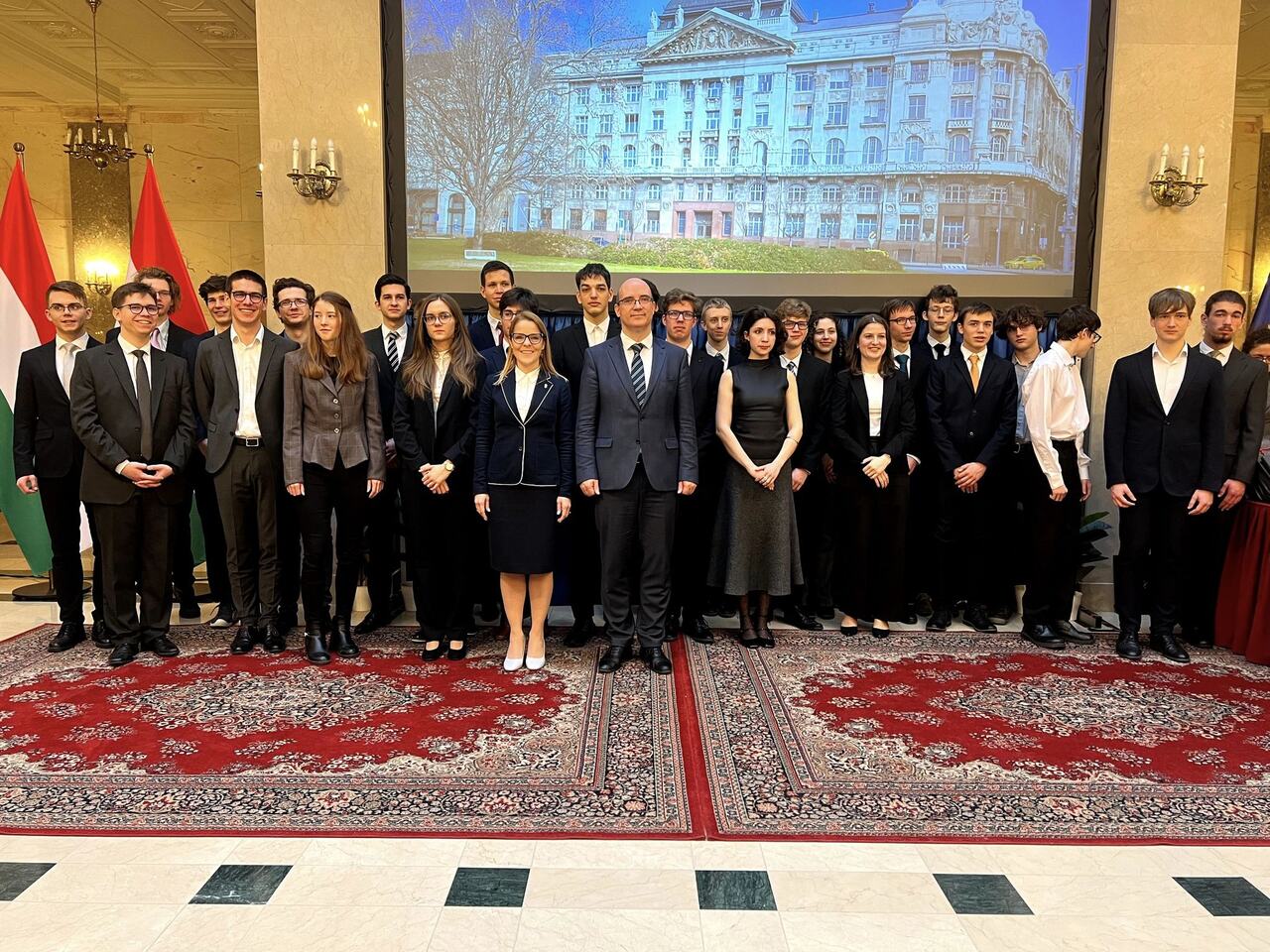
Hungarian young students last year won more medals than ever before at the international student science Olympiad, the state secretary for public education said on Friday.
Zoltán Maruzsa presented awards to the students and their teachers who took part in the 2023 International Junior Science Olympiad, and noted that they gathered 36 medals, of which 4 were gold, 14 silver and 17 bronze, while the team also won a bronze medal. Besides this, Hungarian students also won 11 medals in other international academic competitions.
He noted that the government’s public education administration devotes special attention to talent management, referring to the National Talent Programme and student participation in scientific competitions and olympiads, supported by 4 billion forints.
Read also:
PHOTOS: Hungarian language university in Slovakia celebrates 20th anniversary
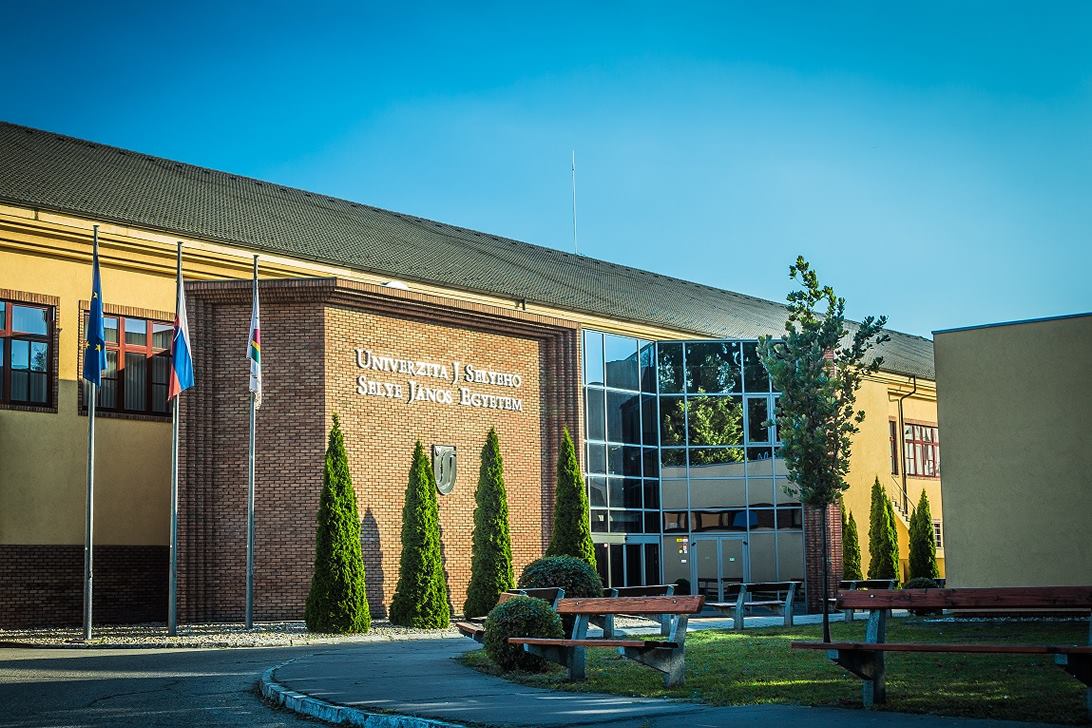
The Selye János University of Komárno (Révkomárom) in southern Slovakia embodies “the joint success of Slovakia Hungarians”, Árpád János Potápi, state secretary in charge of ethnic Hungarian communities, said at a conference marking the 20th anniversary of the university on Wednesday.
The university is “not only the top of (Hungarian) schools in Slovakia, it is at the same time a stronghold of the culture of local Hungarians,” Potápi said.
The state secretary noted that the university had a theology faculty, and said “the message is that the church is an indispensable community when it comes to defining the future of the nation”.
Concerning the Hungarian government’s focus on ethnic kin in its foreign policy, Potápi noted the results: “Hungarian resources, science cultivated in Hungarian, and a Hungarian future; as long as we want to build a future for Slovakia Hungarians, that policy must not be abandoned,” he said.
Courses at the Selye University, the first independent Hungarian university in Slovakia, started in September 2004.
Read also:
Students in Hungary in deep trouble: financial struggles are immense

It’s increasingly common for Hungarian students to juggle work alongside their university studies. This necessity stems from the steep cost of living, sparse scholarship opportunities and limited financial aid. Although universities and government bodies offer numerous valuable scholarships, navigating the tightly regulated eligibility criteria poses a significant challenge for many students.
As revealed by Eurostudent‘s recent assessment of Hungarian students’ living and educational circumstances, one-fourth of Hungarian students disclosed facing moderate financial challenges, with an additional 23% indicating significant or severe financial hardships. Over half of the students reported financial difficulties, with 16% unable to cover expenses exceeding HUF 100,000 (EUR 257) independently, while 40% would require assistance from parents, family or partners to meet such costs. Half of the students surveyed reported no financial concerns. Delving into student accommodation statistics, it’s apparent that living arrangements pose the most significant expense; most students reside with their families, while three in ten pay rent, and an additional 18% reside in dormitories.
The motives
Half of the student workers cited covering living expenses as their primary motivation, while others aimed to address needs beyond the essentials with their earnings. Many opt to work to fund their studies or provide support for their families, while others seek to gain valuable professional experience. However, a considerable number of students find it challenging to balance work commitments with their studies, according to Economx. Among students who work while studying, 52% primarily identify as students, while the remaining 48% lean towards seeing themselves more as employees than students.
Insights into Hungarian students’ profiles
Demographic data reveals a higher representation of female students compared to males. Despite this overall trend, men dominate fields such as IT, sports, science and engineering, whereas women are notably overrepresented in disciplines like teacher training, humanities, arts education, medicine and health studies. In higher education, Hungarian nationals make up over 90% of students, followed by 3% from neighbouring countries and approximately 1% from other European nations. Students from non-European countries comprise nearly 8% of the total student population. Foreign students commonly pursue degrees in natural sciences, engineering, social sciences as well as medicine and health. Unlike fields such as law and teacher training, sports exhibit not only low representation among foreign students but also among dual Hungarian citizens. The Hungarian students represented in the statistics were primarily enrolled in bachelor’s programmes (9,260) with a notable presence in master’s (2,243) and postgraduate (2,713) programmes. Furthermore, 89% of students are enrolled full-time with the largest concentrations found in economics, engineering, medicine and health sciences. 78% of students are enrolled in state-funded courses, meaning their higher education expenses are covered.
Read also:
Hungary’s most popular university degrees among foreigners

While there are a great number of people flooding to work in Hungary, what do the numbers say about education? Let’s see how many people come to Hungary for the sake of learning.
Hungary has indeed had some problems with its education system recently, but regardless, university level education does have its beneficiary qualities. How convincing are these benefits for foreigners?
Popular fields
These facts are according to a conclusive survey done by Eurostudent in more than thirty countries, which was conducted back in 2022. This research, also noted by Economx, states that the number of foreigners in the Hungarian higher education system barely exceeds 10 percent.
The fields most populated by foreigners are natural sciences, agriculture, engineering, social sciences, medical and health sciences. The popularity of these degrees can be due to their high quality and well-known successes in addition to their internationality. Meaning that, with a degree in medical sciences, one can work just about anywhere. There are no exclusively specific systems in place that would obstruct that field from its internationalism.
These degrees naturally bear a great number of students from abroad, while some fields seem to lack foreign students.
Less popular fields
Those lacking are mainly teacher training, legal and political science programs and sports education. Some of these, like law degrees, can be explained by the fact that they are very unique to Hungary and once someone commits to it, it’s quite hard to move away. The other part of the list may be in relation to the quality of these same degrees in neighbouring countries.
Surprisingly, in these fields, the low numbers aren’t only for foreign students. There are also fewer people with dual Hungarian citizenship partaking in these degrees.
Tendencies of time
According to the survey, most students who came from abroad are enrolled in master’s programs. When looking only at master’s programs, 19 percent of the whole student body is counted as a non-Hungarian. In undivided programmes, this number is 9 percent. It’s lowest in the undergraduate programs, with a shy 7 percent of students hailing from abroad. Seems like students are generally more keen on leaving their old life for their studies in their later years.
Surprising statistics
These statistics translate into Hungarian universities’ population being 90 percent Hungarians, including those with dual citizenship. Out of this staggeringly high number, 87 percent were born in Hungary. What is surprising though is that out of the 13 percent of students who were born outside the borders, 8 percent come from beyond Europe. Out of those who study in Hungary now, only 3 percent were born in neighbouring countries and a shy 1 percent marks those who come from more distant European lands.
To summarise, the total proportion of those whose native language is not Hungarian is around 10 percent.
This could also interest you:
Budapest international conference on the future of education in February

Mathias Corvinus Collegium (MCC) will organise an international conference on the most pressing issues and trends in the future of education at the end of the month.
Speakers at the conference to be held on 27-28 February in Budapest will include leading experts from around the world, such as British historian and writer Nicholas Tate, Brazil’s former state secretary for family affairs Angela Gandra and former Paraguayan culture minister Fernando Griffith, MCC said in a statement.
The MCC Budapest Summit on Education will focus on finding the reasons behind the perceived decline in the education systems of Western countries as well as the most pressing issues in education, the statement said.
Read also:
- Hungary’s largest private education institution MCC purchases top private university in Austria – Read more HERE
- Orbán-university will conquer London?
FM Szijjártó: Naturally, Hungary provides help to neighbours in trouble

It is natural for Hungary to provide help to a neighbouring country when it is in trouble, Foreign Minister Péter Szijjártó said in Croatia’s Petrinja, addressing the inauguration of a school damaged in an earthquake and rebuilt with HUF 8.7 billion (EUR 22.5 million) of Hungarian government support.
The earthquake hit Croatia on Dec 28-29 in 2020, killing seven people and leaving another 28 injured.
“We laid the cornerstone of the school 18 months ago and pupils could return to the 5,500sqm facility with 20 classrooms last month,” Szijjártó said, adding that the school “provides high-level education to 350 children”.
He called the fully rebuilt school “as proof of the friendship between Hungary and Croatia and their people”.
The foreign minister noted that the Hungarian government had also supported the refurbishment of a school in Topolovac with HUF 60 million and the rebuilding of a church in Sisak with HUF 750 million.
Read also:
University Awards Gala and Media Ball: Széchenyi István University recognizes its best – PHOTO GALLERY

Sponsored content
Three students, one lecturer and one alumnus of Széchenyi István University were honoured at the University Awards Gala and Media Ball. The University Hall was packed for the prestigious event.
For two decades, the Media Ball has been Győr’s defining social event, which is now also the University Awards Gala. In his welcome speech, Imre Pintér-Péntek, chief organiser of the event, President of the Győr-Moson-Sopron County Chamber of Commerce and Industry and Managing Director of X-Meditor Ltd., drew a parallel between the organisation of the first Media Ball in 2004 and the elevation of Széchenyi István University to university status in 2002. He described it as a historic moment that the institution is recognising its most outstanding citizens for the first time at this evening. Prof. Dr. Csaba András Dézsi, Mayor of Győr, said: the diligence, talent, knowledge and work of the people of Győr create the basis for success, of which the excellent university is a part. “If Győr develops, the university develops, if the university develops, the city develops”, he said.
Dr. Bálint Filep, President of the University, emphasized in his welcome speech that the university years are the most decisive years in the lives of young people.
“It is during this period that they find their profession, their vocation, and establish their career. They learn how to survive without their parents. They gain experience abroad, and many find a partner. It is not easy to become independent, but Széchenyi University provides an excellent and supportive environment for this,” he said.
He added: “a good university needs excellent colleagues, inspiring academic subjects, constant challenges, an entrepreneurial ecosystem, diverse sporting and cultural opportunities, and a campus that serves students to a high standard. “I am proud to say that Széchenyi University has all of these,” said Dr. Bálint Filep. He noted that the high quality of the institution is guaranteed by the fact that it has been ranked in six world rankings in higher education, on four of which it has made its debute last year.
“These rankings place us in the top five percent of universities in the world. Our students have the opportunity to flourish in a truly international environment, as our student community is made up of young people from nearly 80 countries,” he said.
Two students were awarded the Student of the Year 2023 prize at the event. Dorina Bosits, a law student at Széchenyi István University, won the National Higher Education Scholarship with the highest score of all students this academic year. She won the 2022 YOU MÁJT WIN Legal History Competition and last year’s Latin Literacy Competition, and contributed to the success of the Law and Political Science Section of the 36th National Scientific Student Conference 2023 in Győr. Dániel Doma, a student of computer engineering, achieved the highest score among the students of the university studying in the field of engineering and technology in the National Scholarship for Higher Education 2023/2024. He also carries out research and development activities in the Special College of Computer Science and the Special College of Mechanical and Electrical Engineering. His cross-disciplinary innovation was a success at the Scientific Students’ Conference: he created a web interface that shows the live performance of Hungarian power plants. He is proud to be involved in the development of Széchenyi University’s own satellite.
Wiradisuria Ahmad Faishal, a logistics engineering student, was chosen as the International Student of the Year. The Indonesian youngster was recognised for his success at the Student Science and Arts Conference, as well as his research and community activities.
The Teacher of the Year Award was given to Dr. Gyula Pinke, Professor of the Albert Kázmér Mosonmagyaróvár Faculty, an internationally renowned authority in botany, for his outstanding work in the field of student education and talent management.
The Alumnus of the Year is József Kreinbacher, a renowned building contractor and champagne producer, who contributes to the reputation of the university through his versatile and exemplary work, innovative solutions and commitment to quality. He graduated in Transport Engineering from the predecessor of the institution, the Technical College of Transport and Telecommunications. Unable to attend the ceremony in person, he thanked the recipient by video message.
“The unforgettable years in Győr gave me the practical knowledge and mindset that I could put to good use in both professional and business life. The university’s ethos has strengthened my openness to the world, shaped my personality and awakened in me the creative desire not to be afraid to dream big and sometimes to go down paths that no one has trodden before,” he said, calling the university’s development inspiring.
The guests of the spectacular, high quality event were entertained by such excellent artists and musicians as Adrien Szekeres, Boldizsár László, Erika Miklósa, the Győr Philharmonic Orchestra, the Dívák (Enikő Détár, Nelly Fésűs and Judit Ladinek), Máté Járai, Ádám Jávorkai, the 64U Party Band and the Hoppáré band. The opening dance was performed by the Ballet Company of Győr.
Photo gallery
Photos: X-Meditor Ltd.
Hungarian Govt to raise nurses’ and teachers’ wages

Certified nurses will benefit from a 20 percent pay rise from March 1 on, the head of the Prime Minister’s Office told a regular press briefing on Thursday.
Gergely Gulyás noted that the government had earlier decided to follow a European example and set nurses’ wages at 37 percent of those of doctors, and added that average salary in the nursing sector would reach a monthly 715,000 forints after the new hike.
Touching upon the subject of pensions, Gulyás said “the government trusts that an increase of 6 percent this year will be considerably higher than inflation”. He noted that inflation had been 5.5 percent in December.
School and kindergarten teachers will receive a 32.2 percent pay increase in February and another 21 percent increase next year, the head of the Prime Minister’s Office said on Thursday, adding that teachers’ wages will have been doubled during the current government cycle of 2022-2026.
The monthly pay for teachers will be 672,000 forints (EUR 1,760) on average, over 812,000 forints next year and around 880,000 in 2026, Gergely Gulyás told a weekly press briefing.
“The left wing’s efforts aimed at thwarting the release of a part of EU funding for the wage increase have failed,” Gulyás said, noting that with the funding received the government had taken “a big step forward” in fulfilling its earlier pledge to give teachers a substantial pay rise.
Read also:
- Novice teachers in Hungary paid less than 1/5th of annual salary of Danish counterparts
- Hungary needs to grow wages to boost economic rebound
PHOTOS, VIDEO: Protesters demand pay rises for teachers in Budapest
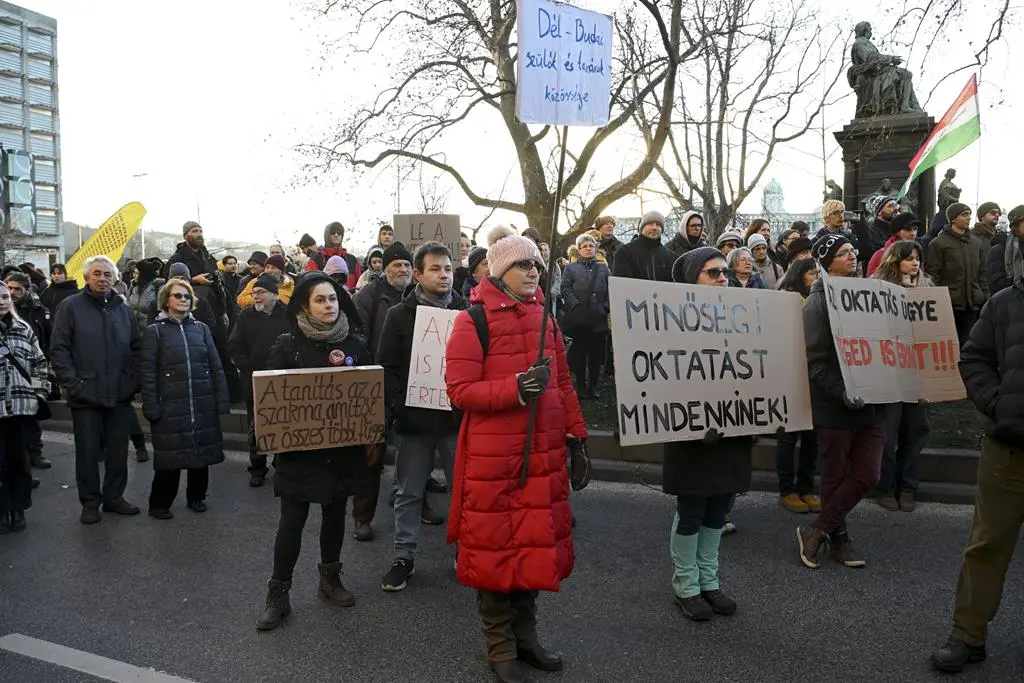
Several organisations held a protest demanding wage increases for teachers in front of the Interior Ministry on Saturday. The demonstration was organised by the Egységes Diákfront (United Student Front), teachers’ trade union PDSZ, Fridays For Future Hungary, Hang (Voice), ADOM Diákmozgalom (I GIVE Student Movement), Országos Közös Akarat (National Common Will) and Civil Bázis.
Noel Perlaki-Borsos of the United Student Front said that the government was “going back on its promises” and questioned the truth of the assertion that pay rises depended on “slips of paper from Brussels”.
PDSZ national board member Alexandra Pál said a 32.2 percent wage increase for teachers had been announced thanks to protestors “who knew no fear”, but added that there was “no guarantee promises would be kept”. She added that protests would continue to address not just teachers’ pay, but the need for a “radical restructuring” of the education system. A few dozen people participated at the protest. As temperatures dipped, police offered hot tea to the participants.
Government: Teacher protest organisers ‘show true colours’
Organisers of teacher protests on Saturday have “shown their true colours” by demonstrating for political reasons rather than for pay rises, an Interior Ministry state secretary said. Bence Rétvári said continuing demonstrations for higher pay even after details of pay rises were announced and the relevant regulations promulgated showed the organisers were not interested in the welfare of teachers but in protesting against the government.
He noted that at most 5-7 percent of teachers had joined strikes and that less than 1 percent had rejected their new legal status. He added that the government had earlier announced the timeframe for raising teachers’ pay, gradually, to close to 800,000 forints (EUR 2,100) by 2025.
Read also:
Most Hungarian universities excluded from the EU’s international research support program

Therefore, the government launched an alternative research cooperation support program under almost an identical name. The original Horizon programme is extremely popular. Even the United Kingdom joined it after Brexit, despite the obligation to pay a lot of money for the membership.
A programme dubbed HU-rizont is being launched with a budget of 8 billion forints (EUR 20.1m) this year to strengthen international research cooperation, the state secretary for innovation and higher education said on Friday.
Balázs Hankó said at the Educatio fair that the government programme would also finance the research expenses incurred by foreign universities working in partnership with Hungarian universities.
“If they try to lock us up, we will open to the world, which is why we have announced the Pannonia Programme for international exchange, for which applications can already be submitted in January, and we are launching the HU-rizont programme to promote international research cooperation,” he added.
Read also:
New details emerged about the impressive wage hike of the Hungarian teachers

Wage increases will benefit all teachers in Hungary, a government official said on Thursday.
Hungary is set to receive EU operative funding of 530 million euros in this year, paving the way for a 32.2 percent wage hike for school and kindergarten teachers from Jan 1, Bence Rétvári, the interior ministry state secretary, told a press conference.
Monthly pay will range between 528,800 forints (EUR 1,395) and 630,000 forints, while teachers who also carry out research will receive 750,000 forints, he said, adding that wages of special needs teachers will increase by 20 percent.
The latest pay rise for teachers was “the biggest” of the post-communist period, he said, adding that another 21 percent increase would follow next year.
The state secretary criticised Hungary’s left wing parties and their MEPs for their “attempts over the past couple of years to block the payment of EU funds”, money that was necessary for implementing the pay hikes.
Announcing the receipt of the EC approval on Wednesday, Gergely Gulyás, the head of the Prime Minister’s Office, said that 530 million euros of EU funding would cover 12 percent of the raise until 2030.
Istvan Hollik, the communications director of the ruling Fidesz party, said in a video message that despite the Hungarian left wing’s efforts “to obstruct” the payment of EU funds to Hungary, “it is now certain that teachers and kindergarten staff will receive a substantial wage hike ensuring that their salaries amount to 80 percent of average pay in 2025.”
He said left wing politicians “stood in line” in Brussels asking the European Commission to keep setting new conditions before making any payments to Hungary, but “their efforts have failed again”. “The dollar left has again proved that when it comes to choosing between the interests of Hungary, the wage hikes for teachers and their petty political interests, they always opt for the latter,” he said.
Read also:
PM’s chief of staff: European Commission sent ‘guarantee’ needed for teachers’ wage hike

Hungary received the “written guarantee” expected from the European Commission on Wednesday, and so school and kindergarten teachers will receive the planned 32.2 percent wage hike, the head of the Prime Minister’s Office said.
The wages of vocational school employees will also be raised, from government coffers, Gergely Gulyás told MTI. The raises will be in effect from January 1, he added.
The hike will raise teachers’ wages to 71.8 percent of the average wage of degree holders. Hungary’s commitment to raise their salaries to 80 percent of that will be achieved by a planned raise of 21 percent at the beginning of 2025, he added.
The EU funds, 530 million euros, will cover 12 percent of the raise until 2030. The measure will impact some 140,000 people, Gulyás said.
Read also:
Uniform pay hikes needed in Hungarian education

Two trade unions have urged that the government’s recent plans to raise teachers’ salaries should be rolled out to staff in vocational training and in higher education.
The Democratic League of Independent Trade Unions and the National Federation of Workers’ Councils in a statement on Wednesday welcomed the government’s announcement of pay hikes for teachers, but warned that introducing a hike “without applying uniform principles” would lead to a tension within the profession.
“A well-deserved and substantial rise should cover all staff in education before the end of 2024,” they said.
Read also:








































